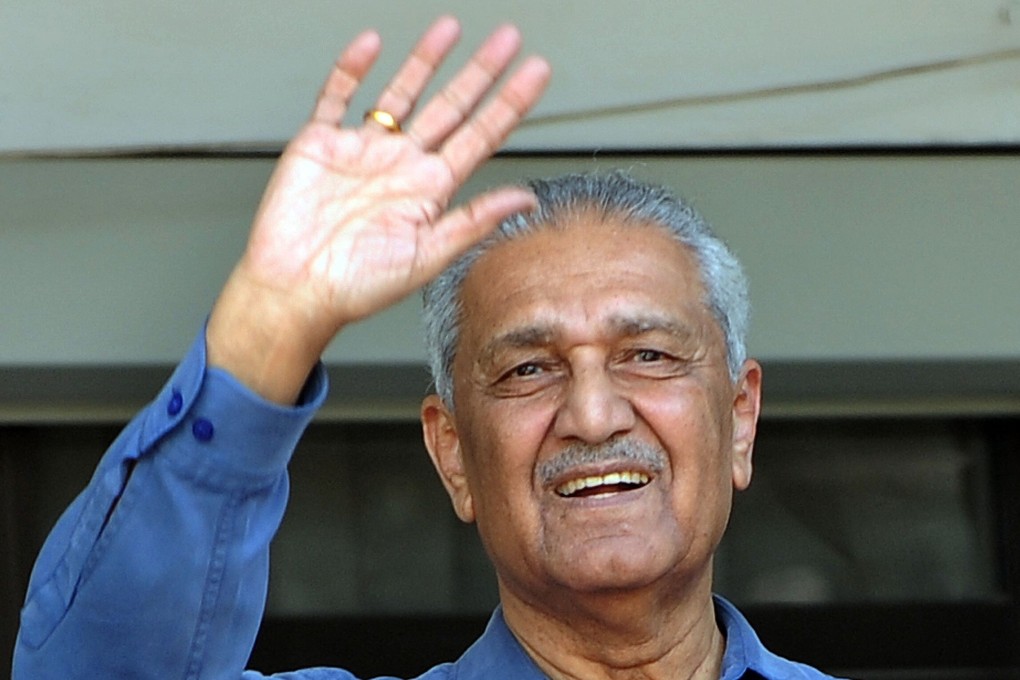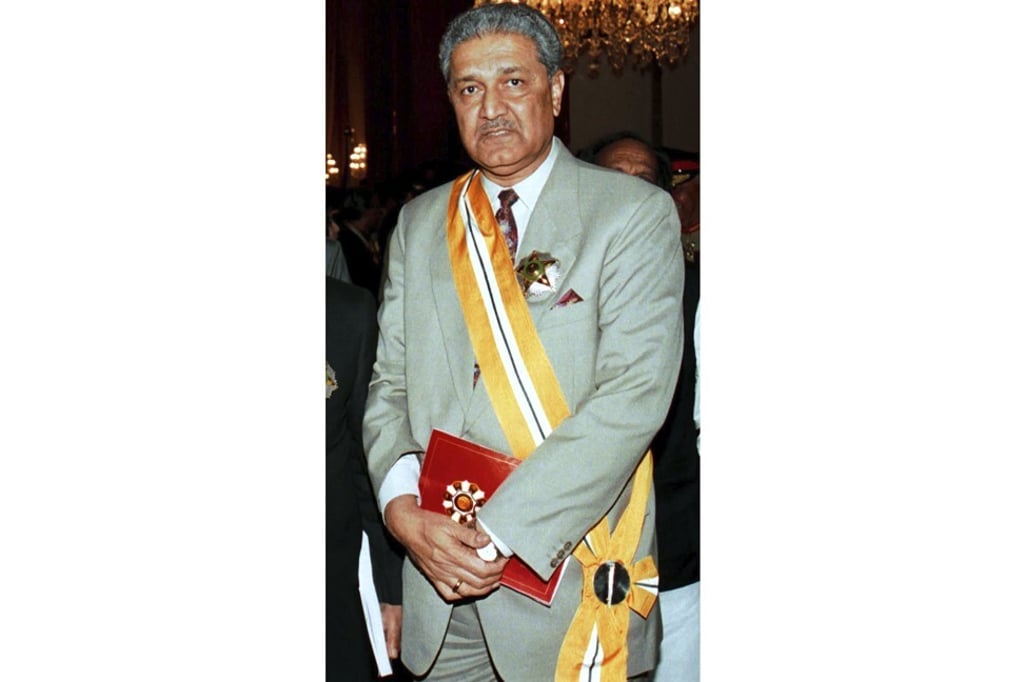Abdul Qadeer Khan, ‘father of Pakistan’s nuclear bomb’, dies aged 85
- The atomic scientist was hailed as a national hero for transforming his country into the world’s first Islamic nuclear power
- But he found himself in the international crosshairs when he was accused of illegally sharing nuclear technology with Iran, Libya and North Korea

The atomic scientist was hailed as a national hero for transforming his country into the world’s first Islamic nuclear power, but regarded by the West as a dangerous renegade responsible for smuggling technology to rogue states.
He died after being transferred to the KRL Hospital in Islamabad with lung problems, state-run broadcaster PTV reported.
Khan had been admitted to the same hospital in August with Covid-19, it said. After being permitted to return home several weeks ago, he was transferred back after his condition deteriorated.
Pakistan’s President Arif Alvi said in a tweet he was “deeply saddened to learn about the passing of Dr Abdul Qadeer Khan”, who he had known personally since 1982. “He helped us develop nation-saving nuclear deterrence and a grateful nation will never forget his services.”
